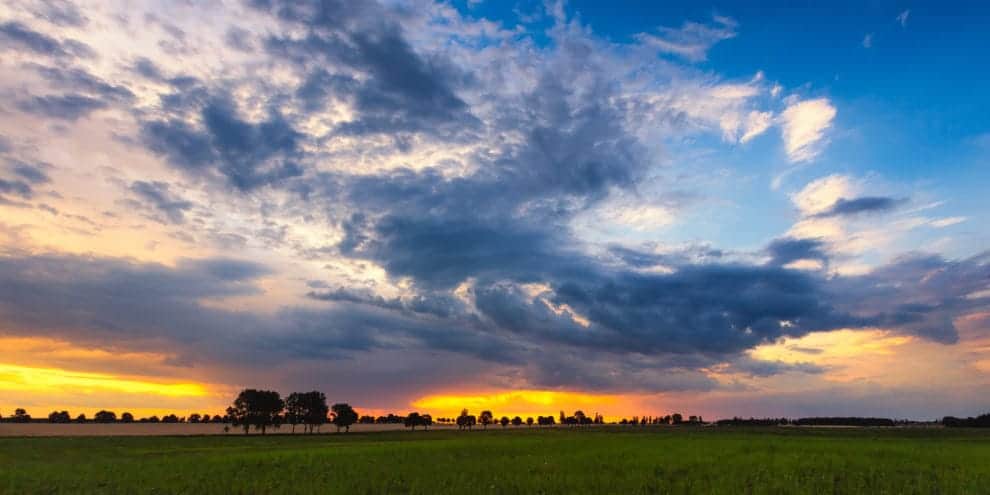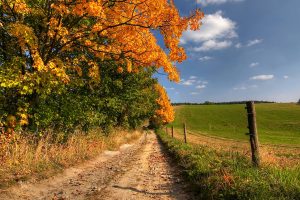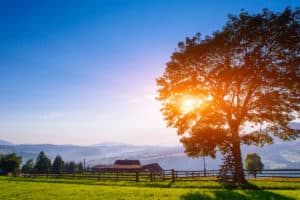People who live on rural land in the country are either “been-heres” or “come-heres.” Both choose to live here—and often it’s a hard choice.
The story of America’s countryside since the 1930s is for the born-heres to go to the city for jobs and a different life. Beginning in the l960s, the counter story has been for come-heres to leave the city for a different life out here.
While it’s cheaper to live in the country, newcomers find that lifestyle living takes money, and it’s hard to find the same job income in a rural economy. Here, then, are some ways that come-heres find cash.
Don’t look for it. The best way to fund a country lifestyle is don’t work for it. Moving to the country with sufficient income to live how you want voids the question of how to earn it. I highly recommend this approach.
Live off your mailbox. Some retirees patch together monthly pension checks to live pretty well in small towns and rural areas. Pension income, of course, is determined by the individual’s career, job and pay. Do not plan on Social Security acting as a Golden Parachute.
Get a job. It’s hard to find a country job that pays like a city job. Adjust your expectations. Professionals — doctors, lawyers, engineers, businesspersons — may earn half their urban salaries, but they can still live on what they make.
Public employment — teachers, administrators, social workers, law enforcement — provides jobs for those with urban skills. Real estate, banking, small business and non-profits are common second acts for come-heres
Get your spouse a job. This is an even better idea than getting yourself one. Two incomes are better than one, for many reasons.
Repackage yourself. Many urban migrants have skills that can be adapted to country economies. An engineer who designed bridges may redeploy as a designer of septic systems or a draftsman. A computer programmer may be reinvented as a troubleshooter—a welcome addition.
Bring a new skill. Plan ahead. If you know that what you do now will not work in the country, get a credential that will.
Make a living off there from here. The Internet has created opportunities for individuals to make money without being where the money is. Consulting is one way, eBay another. Websites enable country residents to market food, art, crafts, knowledge, products and services.
Start something. Job openings are scarce in rural America, and existing business niches are usually filled. Some arrivals come with a thought-through plan for creating a small business–B&Bs are the clichés. It’s best to do something you know more than just a little something about. The other rule is, don’t run out of money. People who have the wherewithal to make something out of nothing should be recruited by every economic-development agency in rural America
Bring a business with you. Businesses have traditionally located in the country because that’s where natural resources are and labor is cheap. Both are still true. Local government and businesses welcome brought-in-enterprises that don’t compete with existing ones. Job-generating ventures are particularly welcome.
Farming. My wife, Melissa, has kept a journal of all the stupid things I’ve said and done for the 25 years of our marriage. She makes daily entries, sometimes hourly. The small-print edition is now as big as an SUV. Topping the list is my pre-marital statement: “If the economy goes into the tank, we can always make a living from the farm.”
Money can be made in farming if the operation is large, and you’re not paying off the land. Most small farmers survive on non-farm income, and the majority of America’s farms are now small, lifestyle or hobby enterprises.
A for-profit small farm generates some cash and many tax benefits—livelihoods are a different matter if your definition includes health insurance, retirement, middle-class income, children and meat once a week.
Small farms will generate small incomes; consider them supplements to other sources.
Land. The source of rural wealth from Colonial times to today has been land. The trick has always been to acquire it without burying yourself in debt.
One common strategy has been to buy a big tract with borrowed money, divide it and flip the parcels for a profit. As division and zoning regulations have tightened, this is often harder than it sounds.
Another idea is to buy an option to buy land. A few dollars put at risk gives the option-holder a chance to sell for a large profit.
A third idea is to buy land and sell one or more severable assets—like an unwanted house, merchantable timber or a few lots. A good deal is achieved if you buy 250 acres and sell 200 in 50-acre parcels, leaving 50 acres for free.
Diversify. Many out-heres depend on several jobs or businesses to float our boats. A conventional job provides a weekly paycheck and benefits, which we might pad out with farm income and self-employment, such as tutoring, craft sales, catering, antique-dealing, consulting, tax preparation, daycare or handy-personing. Don’t lay all of your eggs from one hen, which is country-speak for: Think conglomerate.
This content may not be used or reproduced in any manner whatsoever, in part or in whole, without written permission of LANDTHINK. Use of this content without permission is a violation of federal copyright law. The articles, posts, comments, opinions and information provided by LANDTHINK are for informational and research purposes only and DOES NOT substitute or coincide with the advice of an attorney, accountant, real estate broker or any other licensed real estate professional. LANDTHINK strongly advises visitors and readers to seek their own professional guidance and advice related to buying, investing in or selling real estate.










Add Comment